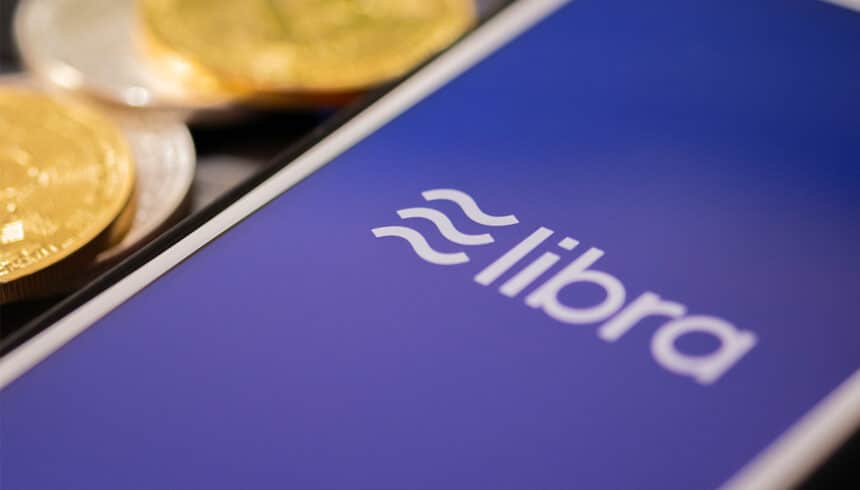Unless you've been hiding under a rock, you'll have heard whispers of Facebook's plans to release their very own digital currency — Libra.
Hailed by some as the "future of money", it's hard to imagine how a tiny startup from a college dorm could grow to control entire economies and global markets.
Whether you're planning to invest in Libra or looking further afield to other cryptocurrencies, recent developments in digital currencies are changing the way we think about money and challenging financiers to adapt to an evolving economic landscape.
Join us as we ask whether you should invest in digital currency and explore how Facebook's audacious entrance into the world of finance could ruffle some feathers.
What is Libra Cryptocurrency?
First announced in June 2019, Libra is a cryptocurrency developed by Zuckerberg’s army of tech boffins at Facebook.
The social media giant says Libra aims to “reinvent money and transform the global economy so people everywhere can live better lives.” While we’ll leave it up to you to decide the sincerity of Facebook’s mission, one thing is for sure — Facebook is rocking the boat.
With almost 2.5 billion monthly active users worldwide, Facebook has access to more personal information than any other organisation on the planet. While Facebook claims Libra will create a fast, stable and secure currency for all, the opportunity to combine personal data with digital currency is an advertiser's dream.
What’s the Technology Behind Libra?
Libra plan to combine a series of servers to create a bespoke blockchain platform called 'Libra Network'.
While most cryptocurrencies allow any server to bolt onto a blockchain, Libra Network is unique in that it's a 'permissioned' platform. This means that only specific servers will be able to join the chain.
A permissioned blockchain has three key benefits (from Facebook’s perspective at least):
- Faster transactions. Limiting the number of servers in a blockchain can increase efficiency and promote faster online transactions.
- Governance. While most peer-to-peer networks require an entire network to agree to a change, permissioned blockchains give members of the business network ultimate control of the blockchain.
- Partial Decentralisation. Members of the business network are free to choose the algorithms they employ in the blockchain. While decentralisation is typically a positive force that promotes transparency, Libra will have partial control of each transaction.
Despite initial concerns around transparency, Facebook has said it plans to evolve into a “permissionless mode of operation” to create a “simple, inclusive and global” currency.
Who’s In Charge?
While Facebook is the beating heart behind the development of Libra, the currency itself will be managed and operated by a separate legal body.
The Libra Association is a not-for-profit organisation, responsible for bringing Zuckerberg's vision to the world. The association consists of over twenty founding members who provide asset-backed securities to cement the value and reputation of Libra.
Libra is backed against a diverse portfolio of some of the world’s largest organisations.
Members include Uber and Spotify in the technology sector, Coinbase in the blockchain business, Andreessen Horowitz in venture capital, and even nonprofits including mercy corps and Women’s World Banking.
Member organisations are responsible for running servers in the Libra Network and managing the asset-backed reserve to maintain financial stability.
Will Libra Be Stable?
The first rule of thumb when investing in currencies is stability. While it's possible to take a gamble on a volatile currency, financiers typically view instability as a red flag.
If Libra is to have any real impact on global economies, it must establish itself as a stable currency that can keep pace with the USDs, GBPs, EURs and CNYs of this world.
While most cryptocurrencies are pegged against real currencies, Libra will not be backed against a single currency. Unsurprisingly, Zuckerberg has thought outside the box by pegging the value of Libra against an assortment of fiat currency bank deposits.
How to Buy Libra Currency
One of the biggest stumbling blocks for existing currencies is the B2C and C2C platforms used to make crypto transactions.
Facebook has recognised this gap in the market and intends to bring its digital currency to the masses through a subsidiary venture called Calibra. Initially, Calibra plans to release a user-friendly app which integrates with WhatsApp and Facebook Messenger to process affordable and seamless transactions across the world.
While mixing social networking with personal finance might sound a little risky, Calibra assures its users that they operate as a separate entity to Facebook and are committed to providing a “protected” and “private” service.
Why Use Digital Currency?
While humans have come a long way from trading pearls or bartering with nearby villagers, some experts believe the rise of the digital currency could create an entirely cashless society.
The ability to ‘wire’ money across the world in seconds and instantaneously switch between different currencies at the press of a button is changing the way we understand global markets.
Whether you’re trading millions of dollars on the stock market or buying a second-hand jumper on Facebook Marketplace, there’s no hiding from the rise of digital currencies.
Will Digital Currency Replace Paper Money?
Did you know that 85% of the world's transactions still use cash?
Although technologies like contactless credit cards, Paypal and Apple Pay go a long way to outshine scruffy notes and dirty coins, the majority of the world still rely on physical cash. The Libra Association explain how 1.7 billion people worldwide don’t have access to banking services.
While we're unlikely to wave goodbye to cash anytime soon, digital currencies can improve access to affordable banking solutions that integrate with the global economy.
Stay in the Know With INAA
INAA is an International Association of Independent Accounting firms, established over 25 years ago to facilitate cross-border business.
Our collaborative association was created around a shared vision to make global business personal and take personal business global. We connect accounting firms who are committed to delivering quality professional services and sharing their expert knowledge with clients.
Join today to build powerful business relationships.
